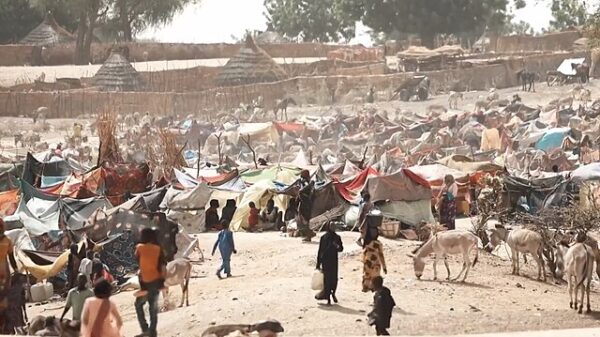In response to COVID-19 in Brazil, MV Bill voices concerns over his country’s situation through his music.
As of now, Brazil is the second most infected country in the world, and the second highest in death toll. As such, the pandemic is not a minor issue; it has become catastrophic. It may seem tiresome news, as the UK and other nations ease their restrictions, but for Brazil the virus is still at a deadly phase, due to the poor handling of the situation by its President Jair Bolsonaro. MV Bill has criticised his management of this health emergency in his rap music, ‘Quarantine’ and ‘Isolation.’
MV Bill was born in Cidade de Deus, the infamous favela in Rio de Janeiro, popularised in negative light as a place of poverty and crime, most prominently by the 2002 film of the same name by Fernando Meirelles and Kátia Lund. The neighbourhood sadly continues to maintain this reputation, now with further difficulties due to the recent pandemic. Insight into this favela life faced with the virus is provided by MV Bill on his track ‘Quarantine.’ In this rap, the Brazilian Government is blamed for ignoring the World Health Organisation’s warnings, and the ways in which Bolsonaro has downplayed the deadly nature of the virus.
‘In the favela, for us, COVID is different
The houses are not big and usually full of people
Inevitable crowding
Some places still lack drinking water’ (all quotes are translated by me).
These are some of the realities faced by the favela community. Social distancing is not possible for residents in crowded homes, with narrow walkways, stairwells and streets. These almost claustrophobic conditions have long been documented; MV Bill, however, brings this agenda back, in relation to the virus spreading throughout this environment. It is not clear, though, who is listening to MV Bill’s message outside of his fanbase, a message that is essentially: ‘We are not invisible, help us!’ It’s a message repeatedly sent to the government regarding aid and countless other issues, all stemming from inequality.
Despite Brazil being the wealthiest nation in Latin America, massive socioeconomic and racial divisions are a continual issue. Brazil’s poorest, living in the favelas, are mostly always Afro-Brazilian. Like elsewhere in the world, the COVID-19 pandemic has shone a light on these divisions and exacerbated them. These so-called ‘social detachments,’ as MV Bill describes them in the rap ‘Isolation,’ have long existed even before the pandemic took hold in Brazil.
‘Isolation’ states, ‘Timely to remember that the virus is ownerless,’ yet it has sadly discriminated against the Afro-Brazilian community the most; those unable to stop their working lives and remain home, as local charities can only provide so much aid. MV Bill explores this dilemma further in the track:
‘Have to go out to work
Even knowing the recommendation
To try to stay at home and reduce circulation
Not everyone can’
One of the saddest scenes occurring in Brazil at present are the mass burial sites, which are concisely referred to by MV Bill in ‘Isolation’: ‘Only a sealed box, little funeral time.’ Relatives are unable to mourn at the burials of their loved ones, as they are buried at speed with no ceremony. It is as if, even in death, they are so infectious that they must be buried as soon as possible to stop the spread. The traditional process of burial is being forgone by those running these sites. The UK, too, has had countless examples where relatives could not attend the bedsides of their dying family members. The virus has not only taken lives, but has also taken away proper goodbyes; if it is even possible to truly say goodbye to important people in your life.
Around the theme of COVID-19, I have only offered a minor insight into Brazil and MV Bill’s hip hop. His music regarding the recent health crisis is not special or new, as most countries around the world have already had their own artists reflect on life during the pandemic. The rapper, however, demonstrates the power of his music to relay information on topical issues facing Brazilians. In this context, it is important to see MV Bill’s music as a reminder of the issues facing the population living in the favelas – issues that are continuously ignored.
Thanks to the orated qualities of hip hop music as a medium, MV Bill’s message communicates to us the perspectives of not just one man, himself, but also of his community and, by extension, Brazil at large.


















